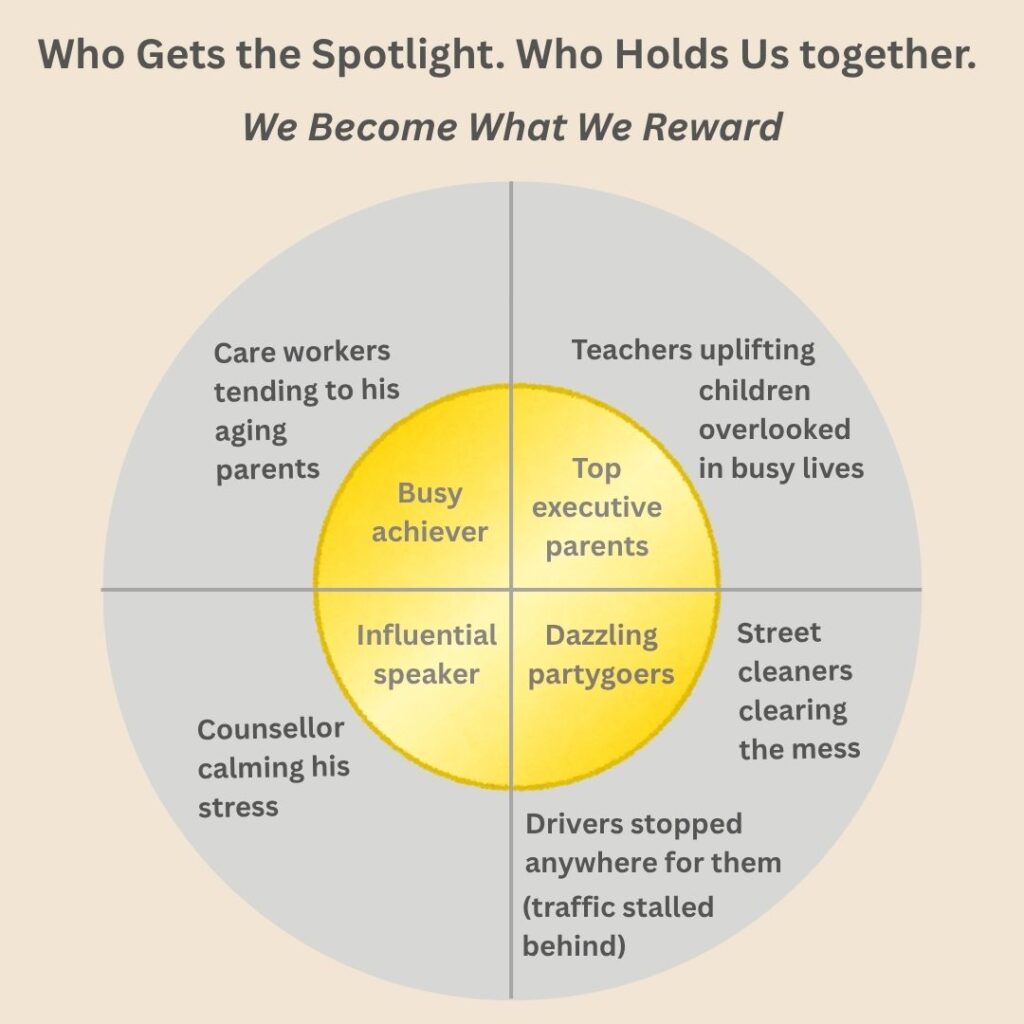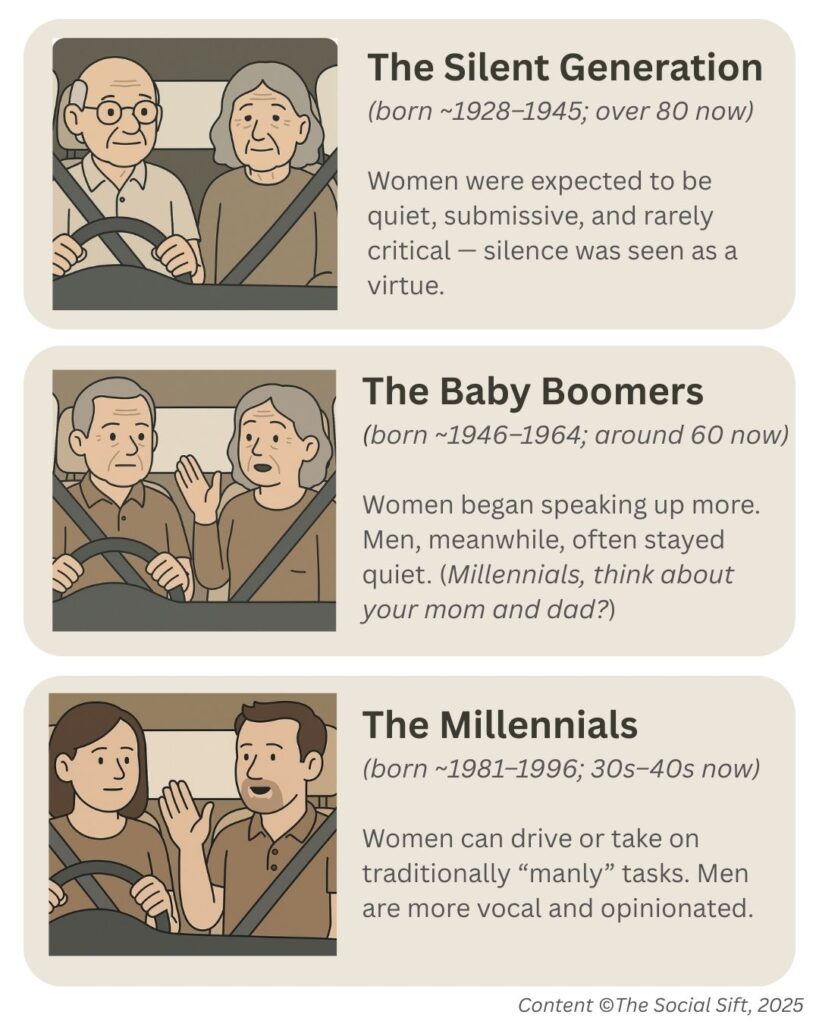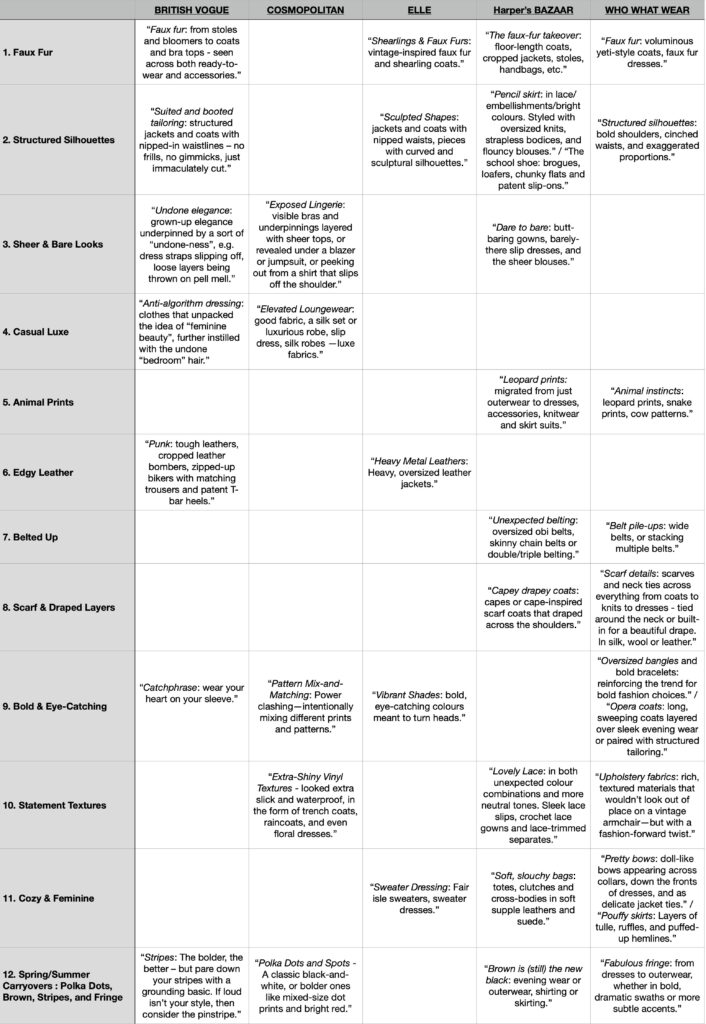We Become What We Reward
Some work produces. Some work preserves. We need both.
Of course money matters — it funds hospitals, schools, transport, infrastructure.
It keeps society running.
But not everything that sustains a society shows up in a profit margin.
What about the teacher who notices a child quietly slipping away?
The counsellor who holds space for someone else’s grief?
The street cleaner sweeping up after an extravagant party?
The care worker helping someone bathe with dignity?
Some roles don’t dazzle.
They steady.
They don’t just serve — they quietly keep society from collapsing in.
And yet, they’re often left out of the spotlight — and overlooked in public policy.
Not because they’re unimportant, but because they don’t offer quick returns.
We often say care work is a calling.
But if we keep asking people to carry the quiet weight of a society without real support — how long before the calling becomes a burden?

We Reward the Dazzle
We’re quicker to reward what dazzles — what’s polished, fast, and loud.
Some move through the world with default ease —
breaking small rules without second-guessing,
taking up space without asking,
confident the world will adjust around them.
Like the glittering partygoers who insisted on stepping out mid-road for convenience
— their drivers stopping wherever they pleased — traffic stalling behind.
Not malicious. Just entitled. Unquestioned comfort.
While others are taught to follow rules — to prove they belong.
The difference isn’t just personality or confidence.
It’s a quiet social code — about who’s seen, and who stays backstage.
And that code doesn’t just show up in everyday behaviour —
it’s baked into policy, budgets, even immigration criteria.
Whether in homes or at the border: We become what we reward.
It unsettles me how quickly human worth gets reduced to numbers.
When we shape policy and public recognition around financial output —
we don’t just filter who gets in.
We shape what we become.
Yes, financial contribution is real.
And yes, governments face real challenges measuring the intangible.
But if we only measure what’s convenient —
who do we leave out?
Should that really be the way we decide who belongs?
Teachers don’t meet salary thresholds.
Care workers don’t score top visa points.
But who dresses the wound?
Who makes sure children are well — and nurtures the bedrocks of our future?
We often reward what’s loudest — not what’s deepest.
It’s not just about who gets in.
It’s about who we’re becoming.
And who keeps us together.



